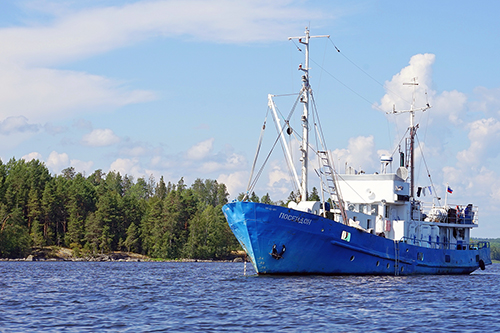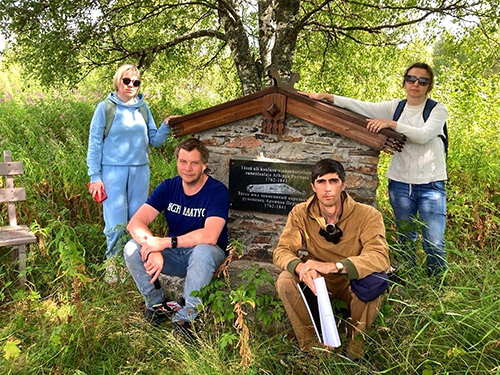According to Lyudmila Rozanova, the study of direct foreign investment flows and trends in Eurasian exports of goods reveals that there are grounds for a paradigm shift in international economic relations, as well as serious conceptual shifts towards a new global architecture. In particular, the dynamically developing role of Asian, African and South American countries is becoming more attractive to investors. This suggests that competition between countries will rise.

Senior Researcher of the Institute of Economics KarRC RAS Lyudmila Rozanova
– In Russia, the flow of foreign investment is turbulent, but this does not hinder the dynamic growth of GDP and domestic investment in the development of production and infrastructure. At the same time, the export potential contributes significantly to the GDP. China accounts for the bulk of exported goods, – the economist remarked.
She also stressed that the key role in the near future will be played not by individual countries, but, due to interdependence, by their alliances or blocs.
- New regional configurations, such as the BRICS and SCO alliances, will make the economy globally more manageable and raise the chances of reaching agreement among the participants, - Lyudmila Rozanova added.
During the discussion, members of the KarRC RAS Learned Council recognized the high relevance of the topic and encouraged the author to prepare a monograph based on the results of the study.

KarRC RAS Learned Council approved the results of the study. The photo shows KarRC RAS Director General Olga Bakhmet and KarRC RAS Secretary for Science Natalya Fokina
– We seek to fit in the current global trends: apart from general political and general economic processes, it's essential to find a place for ourselves, how we can contribute to the country's development. And here we can clearly see the need for greater commitment to innovation. Communicating with our Belarusian colleagues, we can see how much science in Belarus is geared towards innovative activity: they have smooth connections with enterprises. Even if basic science still stands quite high in Russia, we ought to rebuild that track as well. Our task, for the Karelian Research Center as well, is to network with industrial enterprises, and we have been doing this very actively in recent years. We must listen to industrialists and manufacturers, understand what issues should be addressed to facilitate the development of one or another enterprise, - said KarRC RAS Director General Olga Bakhmet in continuation of the topic.
Another question discussed at the Learned Council meeting was creation of a new electronic scientific journal – Studia Nordica, at KarRC RAS. The idea was presented by Senior Researcher of the Institute of Linguistics, Literature and History KarRC RAS Alexander Tolstikov. He explained that the new journal is meant to carry on the traditions of the Almanac of North European and Baltic Studies, which was published at the Petrozavodsk State University in 2016-2023.

The journal proposal was presented by historian Alexander Tolstikov
The journal's objectives and tasks are to facilitate cooperation between researchers of the language, culture and history of North European countries and the history of their relations with Russia in general and the North-West in particular. Karelia happens to be at the center of such interactions as a region in which they have been going on for centuries, – the historian remarked.
He added that the country currently has no journal that would unite the efforts of specialists in Nordic and Finno-Ugric studies - historians, linguists, and literature scholars. Thus, the new outlet can become a concentration point for the efforts of all those working on the relevant subjects. The plan is that the journal's editorial board will include leading scientists in their respective fields from the country's scientific organizations, including Corresponding Fellows of the Russian Academy of Sciences. The Editor-in-chief will be Irma Mullonen, Corr. Academician, Leading Researcher of the Institute of Linguistics, Literature and History KarRC RAS.
The KarRC RAS Learned Council discussed and approved the initiative to create Studia Nordica. “We are ready to support and assist in every possible way in the journal's technical maintenance", – Olga Bakhmet summed up.

Session participants
As the field season has started, the KarRC RAS Learned Council halts its work until the fall. The next meeting is scheduled for September 2025.










